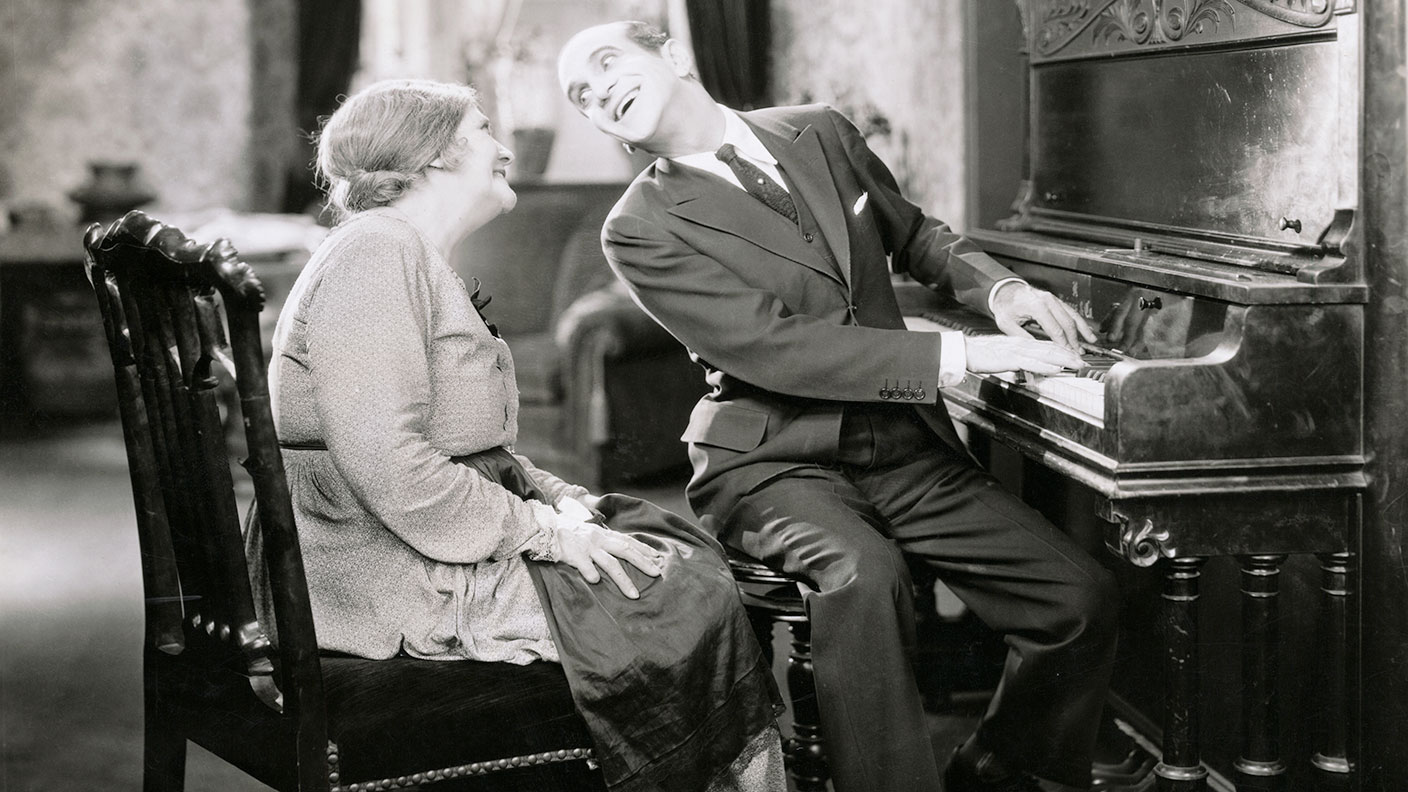
Get the latest financial news, insights and expert analysis from our award-winning MoneyWeek team, to help you understand what really matters when it comes to your finances.
You are now subscribed
Your newsletter sign-up was successful
Want to add more newsletters?

Twice daily
MoneyWeek
Get the latest financial news, insights and expert analysis from our award-winning MoneyWeek team, to help you understand what really matters when it comes to your finances.

Four times a week
Look After My Bills
Sign up to our free money-saving newsletter, filled with the latest news and expert advice to help you find the best tips and deals for managing your bills. Start saving today!
On this day in 1927, New York movie-goers were treated to the premiere of Warner Brothers' film The Jazz Singer, starring Al Jolson. It is widely accepted as the film that swept the silent movie era aside, and, with Jolson's famous line “Wait a minute! Wait a minute! You ain't heard nothin' yet!”, it ushered in a fantastic new world of “talkies”.
Jolson, born Asa Yoelson in what is now Lithuania, was a massive star at the time – Elvis and The Beatles massive. He was known as “The World's Greatest Entertainer”, and was the biggest star on Broadway by a long way. The effect of his performance in The Jazz Singer was such that, by the end of the premiere, the audience was a teeming mob, shouting Jolson's name, and crowding for autographs. Police had to be brought in to restore order.
While The Jazz Singer is revered as one of the most influential films of all time, it wasn't the first talkie. In, fact, it wasn't the first of much. As well as not being the first talkie, it wasn't the first musical. It wasn't the first to have synchronised music. And, despite what some corners of the internet might want you to believe, it wasn't the first film to have a soundtrack imprinted onto the actual film, rather than on a separate disc that had been pioneered by Lee De Forest in the early 1920s.
MoneyWeek
Subscribe to MoneyWeek today and get your first six magazine issues absolutely FREE

Sign up to Money Morning
Don't miss the latest investment and personal finances news, market analysis, plus money-saving tips with our free twice-daily newsletter
Don't miss the latest investment and personal finances news, market analysis, plus money-saving tips with our free twice-daily newsletter
But The Jazz Singer can claim to be the first feature-length film with synchronised sound, which included talking as part of the action. The film used Warner Brothers' “Vitaphone” sound system – essentially, the soundtrack was recorded on a 16-inch phonograph record, which had to be played on a turntable while the film was playing. The projectionist had to manually synchronise the sound with the screen. Given the 89-minute film was made up of 15 reels, this wasn't a trivial task.
More than anything else, The Jazz Singer was by far the most successful of the new-fangled talking pictures, and was the one that captured the public's imagination. It made a profit of some $3.5m, and saw Warner Brothers catapulted into the top ranks of Hollywood studios.
Get the latest financial news, insights and expert analysis from our award-winning MoneyWeek team, to help you understand what really matters when it comes to your finances.

-
 Should you buy an active ETF?
Should you buy an active ETF?ETFs are often mischaracterised as passive products, but they can be a convenient way to add active management to your portfolio
-
 Power up your pension before 5 April – easy ways to save before the tax year end
Power up your pension before 5 April – easy ways to save before the tax year endWith the end of the tax year looming, pension savers currently have a window to review and maximise what’s going into their retirement funds – we look at how
-
 31 August 1957: the Federation of Malaya declares independence from the UK
31 August 1957: the Federation of Malaya declares independence from the UKFeatures On this day in 1957, after ten years of preparation, the Federation of Malaya became an independent nation.
-
 13 April 1960: the first satellite navigation system is launched
13 April 1960: the first satellite navigation system is launchedFeatures On this day in 1960, Nasa sent the Transit 1B satellite into orbit to provide positioning for the US Navy’s fleet of Polaris ballistic missile submarines.
-
 9 April 1838: National Gallery opens in Trafalgar Square
9 April 1838: National Gallery opens in Trafalgar SquareFeatures On this day in 1838, William Wilkins’ new National Gallery building in Trafalgar Square opened to the public.
-
3 March 1962: British Antarctic Territory is created
Features On this day in 1962, Britain formed the British Antarctic Territory administered from the Falkland Islands.
-
10 March 2000: the dotcom bubble peaks
Features Tech mania fanned by the dawning of the internet age inflated the dotcom bubble to maximum extent, on this day in 2000.
-
9 March 1776: Adam Smith publishes 'The Wealth of Nations'
Features On this day in 1776, Adam Smith, the “father of modern economics”, published his hugely influential book The Wealth of Nations.
-
 8 March 1817: the New York Stock Exchange is formed
8 March 1817: the New York Stock Exchange is formedFeatures On this day in 1817, a group of brokers moved out of a New York coffee house to form what would become the biggest stock exchange in the world.
-
7 March 1969: Queen Elizabeth II officially opens the Victoria Line
Features On this day in 1969, Queen Elizabeth II took only her second trip on the tube to officially open the underground’s newest line – the Victoria Line.
